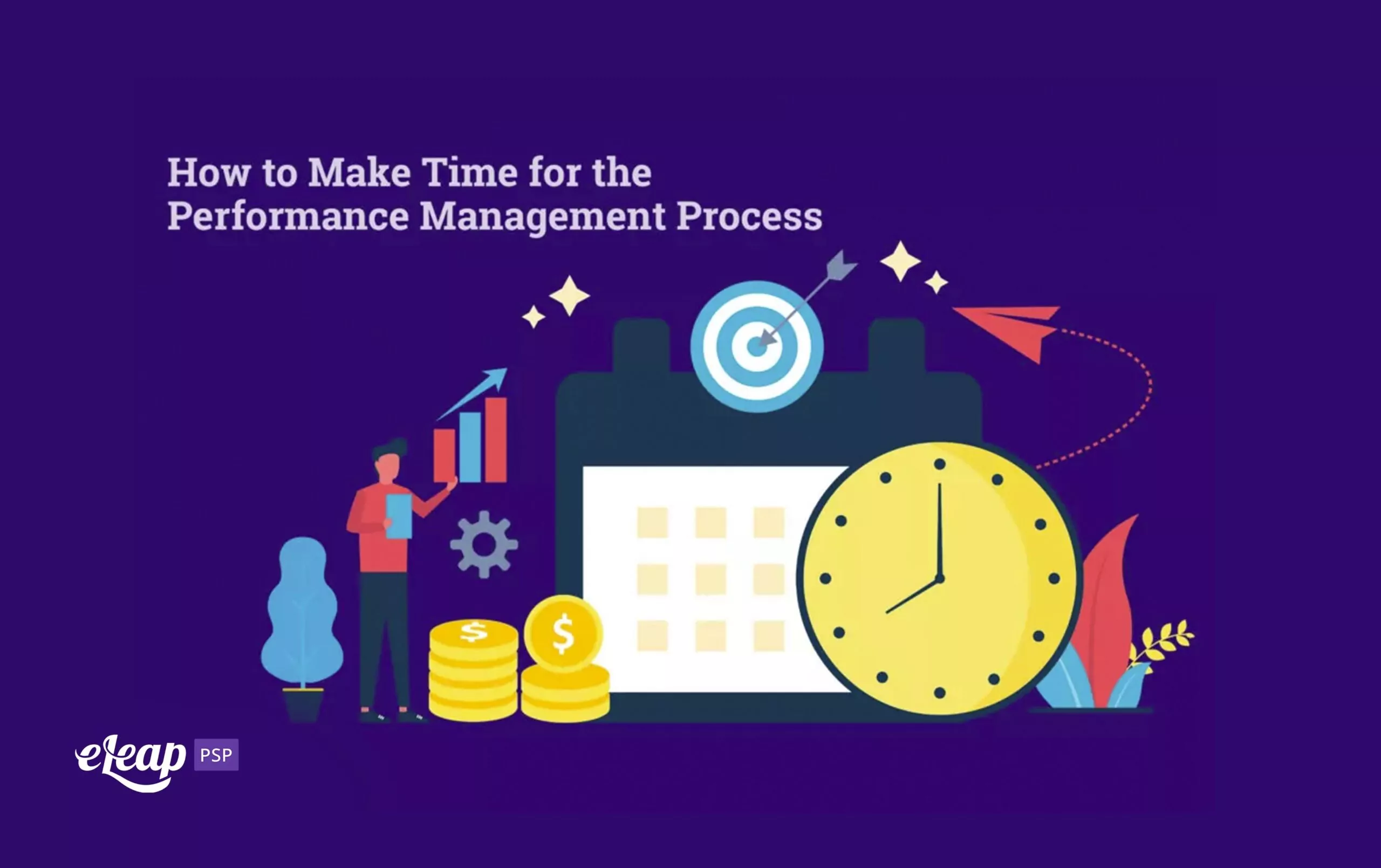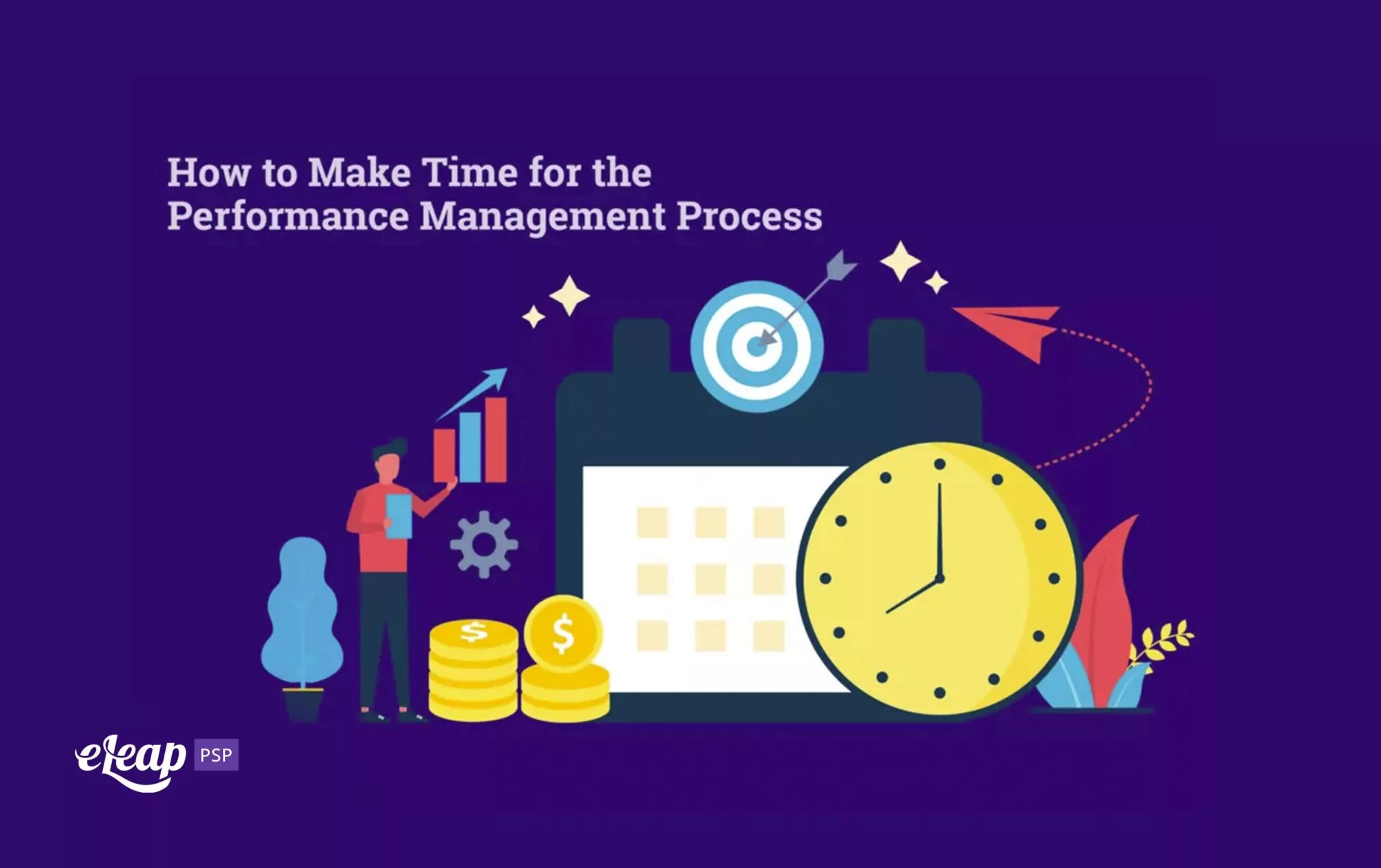How to Make Time for the Performance Management Process

Performance management is vital for all organizations. It doesn’t matter what your industry is or what niche you occupy. If you cannot manage your employees’ performance, you will struggle. It helps to have a performance management process and a system that your whole team can focus on.
Of course, the real challenge here isn’t so much understanding the importance of performance management. It’s finding the time to do it. This is particularly true with the shift away from annual performance reviews and toward regular check-ins and less formal performance management methods.
There’s good news. You can make time for the performance management process in several different ways. In this guide, we’ll walk you through some of the simplest and most effective options available to you.

Is It Really a Problem?
Before we dive too deep into tips on making time for the performance management process, let’s address a widely held misconception. That is, many managers don’t understand that it’s actually a problem. The truth is that most managers only spend about 7% of their time developing their people, according to Harvard Business Review.
The other 93% of their time is spent on administrative tasks, problem-solving, and strategizing. Because your employees are the key to organizational success, it’s safe to say that not enough time is being spent managing their performance and developing them.
Focus on the Positive
While there will always be the need for constructive criticism in performance check-ins and reviews, you can streamline the process and reduce the amount of time it takes by focusing on the positive rather than the negative. What are the individual’s strengths? What do they do well?
Focus on those items. With a positive approach, you raise the employee up rather than tearing them down while making them more amenable to constructive criticism of areas where they might not be as strong.
Invest in a Performance Management System
One of the most important tips is actually the simplest – invest in a performance management system. Today’s systems offer the ability to track performance over time, drill down into problem areas, and unearth critical insights that can help you build your employees up over time.
However, don’t assume that all performance management systems are the same. They’re not. You should ensure that the one you choose is simple to operate; otherwise, your managers will spend more time trying to figure out how to navigate and use the system than they will trying to manage actual employee performance. You also need to ensure that the PMS you choose is agile and capable of handling each stage of your performance management process.
Say Goodbye to Drawn-Out Processes
Performance management doesn’t have to be arduous. It doesn’t need to involve long, drawn-out processes. It doesn’t have to be such a time-consuming thing.
The best way to avoid PM becoming a time sink is to build in brief opportunities every single day for your managers to connect with employees. A few brief examples of how to do this include the following:
- Recognize effort with an in-person thank you and verbal recognition of efforts in front of other employees.
- Spend a few minutes with employees after wrapping up projects to discuss performance details and objectives.
- Schedule 30 minutes each week to check-in with each person who directly reports to the manager.
- Schedule daily team meetings during which broader performance topics can be discussed, and the manager can recognize those who have put in significant effort.
Let Go of Some Responsibilities
For managers, the challenge of finding time to focus on performance management can be compounded by the feeling that they must also be responsible for basic tasks. Understand that as a manager, your job is to manage. Those basic tasks and other responsibilities can and often should be delegated so that you can focus on doing what you should be doing.
In some cases, you may need to remind upper management that your primary responsibility is to manage those under you. It may be necessary to take a look at your regular responsibilities and assign some to other people permanently. After all, if you are too bogged down in administrative duties to actually manage your team, then the position isn’t really management but an administrative job.
Broaden Your Goal Setting
Ideally, you should take a tailored view when it comes to setting goals. You should assign goals to individual employees that tie into department objectives, which in turn tie into business goals. However, if you are too pressed for time, that might be too granular. Instead, consider broadening your goal-setting process.
For instance, instead of setting individual goals, set department goals, and allow the team to determine how they’re going to reach those. This can take some of the onus off you while you find ways to streamline your schedule. Note that this is not a strategy that you should follow for the long term. It’s a short-term solution to pressing needs only. If you cannot find ways to free up time eventually, that needs to be discussed with your boss.
Use Time Out of the Office
If you find it challenging to think about performance management related things, it might be the environment that’s the issue. Use your time outside the office to work on people and performance-related topics. This could be something as simple as taking 10 minutes out of your lunch break or as specific as intentionally going outside for a half-hour to brainstorm ideas and items that you find difficult to talk about with the employee in question. Time outside the office can give you a change of environment, alter the pressure you feel, and provide a distraction-free opportunity to really home in on problem areas that need to be addressed.
In the End
Performance management does not have to be a time sink. It can be streamlined, improved, and augmented by making it part of your day-to-day rather than something that you put off for months at a time. Even the most time-poor manager can find a few ways to free up the time necessary for performance management. If not, it may be time to reassess your role within the organization or delegate some of your responsibilities to someone else.